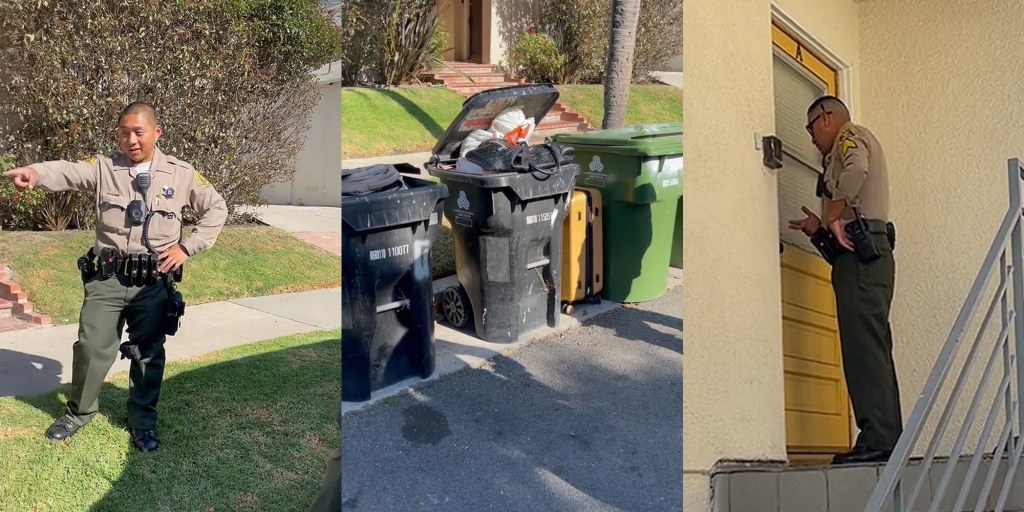Unfortunate Incident: Landlord Threw Away My Stuff – Take Action Now!
Landlord Threw Away My Stuff: A Devastating Experience
Greetings, Smart Peoples!
Have you ever experienced the frustration and despair of having your belongings thrown away by your landlord? It can be a devastating experience, leaving you feeling violated and helpless. In this article, we will delve into the issue of landlords discarding tenants’ possessions without their consent, exploring the reasons behind it, the legal implications, and how to protect yourself from such situations. Let’s dive in!
1 Picture Gallery: Unfortunate Incident: Landlord Threw Away My Stuff – Take Action Now!

Introduction
1. What is the meaning of landlord threw away my stuff?

Image Source: dailydot.com
2. Who does it affect?
3. When does this typically happen?
4. Where does it occur?
5. Why do landlords throw away tenants’ belongings?
6. How can tenants protect themselves?
7. What are the legal consequences for landlords?
What is Landlord Threw Away My Stuff?
At its core, the phrase landlord threw away my stuff refers to the act of a landlord disposing of a tenant’s personal belongings without their permission or knowledge. This can happen when a tenant is evicted, moves out, or even during their tenancy. It is a flagrant violation of a tenant’s rights and can have serious consequences for both parties involved.
When Does This Typically Happen?
The act of a landlord discarding a tenant’s belongings can occur in various situations. It may happen when a tenant fails to pay rent, resulting in eviction, or when a tenant abandons the property without proper notice. In some cases, a landlord may simply decide to take matters into their own hands without any valid reason, violating the tenant’s rights.
Who Does It Affect?
Victims of this issue include tenants who have had their possessions thrown away by their landlords, often without any warning. This situation can affect individuals and families who may lose valuable and sentimental items in the process. It can also lead to emotional distress, financial loss, and a sense of insecurity in one’s own home.
Where Does It Occur?
This problem can happen in various locations, including residential properties, apartments, and rental units. It is not limited to a specific geographic area or type of dwelling. Tenants from all walks of life can be affected by this issue, regardless of their location or socio-economic background.
Why Do Landlords Throw Away Tenants’ Belongings?
There are several reasons why landlords may resort to throwing away their tenants’ possessions. In some cases, it may be due to a lack of understanding of the law or a desire to cut corners. Other times, it may be an act of retaliation or an attempt to reclaim unpaid rent or damages. Regardless of the reason, landlords who engage in this behavior are putting themselves at risk of legal repercussions.
How Can Tenants Protect Themselves?
To protect yourself from having your belongings thrown away by your landlord, it is crucial to understand your rights as a tenant. Familiarize yourself with the terms of your lease agreement, including any clauses regarding property abandonment. Communicate openly with your landlord and document all interactions, especially regarding the handling of your possessions. It is also advisable to seek legal advice if you believe your landlord has unlawfully disposed of your belongings.
Legal Consequences for Landlords
Landlords who throw away their tenants’ possessions without proper cause or following legal procedures can face serious consequences. They may be subject to legal action, including financial penalties and possible criminal charges. Additionally, their reputation as a landlord may be tarnished, making it difficult to attract future tenants.
Pros and Cons of Landlord Threw Away My Stuff
1. Pros of this issue:
– Can be a wake-up call to reassess tenants’ responsibilities
– May prompt improvements in tenant-landlord communication
– Can lead to stronger tenant rights advocacy
2. Cons of this issue:
– Emotional distress and financial loss for tenants
– Violation of tenants’ rights and sense of security
– Potential legal battles and disputes between landlords and tenants
Frequently Asked Questions (FAQs)
1. Can a landlord legally throw away a tenant’s stuff?
– No, it is illegal for a landlord to dispose of a tenant’s belongings without following proper legal procedures.
2. What should I do if my landlord throws away my stuff?
– Document the incident, gather evidence, and consult with a lawyer to understand your options for legal recourse.
3. How can I prevent my landlord from throwing away my belongings?
– Know your rights, communicate effectively with your landlord, and keep records of all interactions regarding your possessions.
4. Can I sue my landlord for throwing away my stuff?
– Yes, you can take legal action against your landlord if they have unlawfully disposed of your belongings.
5. What are the consequences for landlords who throw away tenants’ belongings?
– Landlords who engage in this behavior can face legal penalties, such as fines and criminal charges, and damage to their reputation.
Conclusion
In conclusion, the issue of landlords throwing away tenants’ belongings is a distressing and unlawful practice that can have severe consequences. As tenants, it is crucial to be aware of our rights and take steps to protect ourselves from such situations. By understanding the legal implications, communicating effectively with our landlords, and seeking legal advice when necessary, we can safeguard our belongings and ensure that our homes remain secure. Remember, knowledge is power!
Thank you for reading, Smart Peoples! Stay informed, stay empowered, and protect your rights.
Final Remarks
The information provided in this article is for educational purposes only and should not be considered as legal advice. If you require legal assistance or have specific concerns about your situation, it is recommended to consult with a qualified attorney familiar with landlord-tenant laws in your jurisdiction. While every effort has been made to ensure the accuracy of the information presented, no guarantee is made regarding its completeness or applicability to your individual circumstances.
This post topic: Stuff


